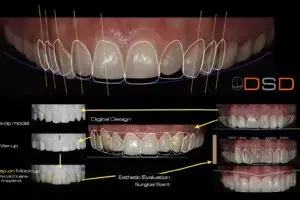Maintaining a healthy smile involves more than just brushing and flossing. Incorporating mouthwash into your daily oral hygiene routine can provide additional benefits that enhance your overall dental health. With a variety of mouthwashes available, it’s essential to choose the one that best suits your specific needs. This guide will help you understand the different types of mouthwash and their benefits, ensuring you make an informed decision for your oral care.
Types of Mouthwash
Mouthwash comes in several varieties, each formulated to address different aspects of oral health. Understanding the distinctions between these types can help you select the most effective product for your needs.
1. Cosmetic Mouthwash
Cosmetic mouthwash is primarily designed to freshen breath and leave your mouth feeling clean. These mouthwashes typically contain flavoring agents and sometimes alcohol to mask bad odors. While cosmetic mouthwash can provide temporary relief from bad breath, it does not address the underlying causes, such as bacteria buildup or plaque.
Example: A peppermint-flavored mouthwash that instantly freshens breath without offering additional health benefits.
2. Therapeutic Mouthwash
Therapeutic mouthwashes contain active ingredients that target specific oral health issues. These mouthwashes can help reduce plaque, prevent gingivitis, and strengthen teeth. Common active ingredients include fluoride, chlorhexidine, and essential oils.
- Fluoride Mouthwash: Helps to remineralise tooth enamel, making it more resistant to decay.
- Antiseptic Mouthwash: Contains antimicrobial agents like chlorhexidine or cetylpyridinium chloride to kill bacteria and reduce plaque buildup.
- Anti-Gingivitis Mouthwash: Formulated to reduce inflammation and prevent gum disease.
Example: A mouthwash with chlorhexidine that effectively reduces bacteria responsible for gum disease.
3. Natural Mouthwash
Natural mouthwashes use herbal and plant-based ingredients instead of synthetic chemicals. These products are ideal for individuals seeking a more natural approach to oral care. Common ingredients include aloe vera, tea tree oil, and baking soda.
- Aloe Vera Mouthwash: Soothes irritated gums and provides antimicrobial benefits.
- Tea Tree Oil Mouthwash: Offers natural antiseptic properties to fight bacteria.
- Baking Soda Mouthwash: Neutralises acids in the mouth, preventing enamel erosion.
Example: A mouthwash containing tea tree oil that provides a chemical-free option for maintaining oral hygiene.
Benefits of Using Mouthwash
Incorporating mouthwash into your daily routine can offer several benefits that complement your brushing and flossing habits.
1. Freshens Breath
One of the primary benefits of using mouthwash is the immediate freshening of breath. Mouthwash can help eliminate odors caused by bacteria and food particles, leaving your mouth feeling clean and fresh.
2. Reduces Plaque and Gingivitis
Therapeutic mouthwashes with antimicrobial properties can significantly reduce plaque buildup and prevent gingivitis. By controlling bacteria, these mouthwashes help maintain healthy gums and prevent the onset of gum disease.
3. Strengthens Enamel
Fluoride mouthwashes play a crucial role in strengthening tooth enamel. Fluoride helps to remineralise weakened enamel, making it more resistant to cavities and decay. This is particularly beneficial for individuals prone to tooth sensitivity and enamel erosion.
4. Enhances Overall Oral Hygiene
Using mouthwash as part of your daily oral care routine ensures a more comprehensive approach to maintaining oral health. It reaches areas that brushing and flossing might miss, providing an extra layer of protection against dental issues.

How to Choose the Right Mouthwash
Selecting the right mouthwash involves considering your specific oral health needs and preferences. Here are some factors to help you make the best choice:
1. Identify Your Oral Health Needs
Determine what you want to achieve with mouthwash. If you’re looking to freshen breath, a cosmetic mouthwash might suffice. However, if you need to address specific issues like plaque buildup or tooth decay, a therapeutic mouthwash would be more appropriate.
2. Check for ADA Seal of Approval
Look for the American Dental Association (ADA) Seal of Approval on the mouthwash label. The ADA seal ensures that the product has been tested for safety and effectiveness, providing you with confidence in its quality.
3. Consider Ingredients
Different mouthwashes contain various active ingredients tailored to different needs. For example, if you need cavity protection, choose a fluoride mouthwash. If you’re battling gum disease, opt for an antiseptic mouthwash with chlorhexidine or essential oils.
4. Taste and Sensitivity
Choose a mouthwash with a flavor you enjoy, as this will encourage consistent use. Additionally, if you have a sensitive mouth, select an alcohol-free mouthwash to avoid irritation and dryness.
Example: An alcohol-free, mint-flavored mouthwash for those with sensitive gums seeking a pleasant taste.
5. Personal Preferences
Some people prefer natural mouthwashes for their chemical-free ingredients, while others might prioritise the strong antibacterial properties of therapeutic mouthwashes. Consider what aligns best with your lifestyle and values.
Proper Use of Mouthwash
To maximise the benefits of mouthwash, it’s important to use it correctly.
When to Use Mouthwash
Incorporate mouthwash into your oral hygiene routine after brushing and flossing. Using mouthwash at this stage ensures that any remaining bacteria and food particles are effectively eliminated.
How to Use It Effectively
- Measure the Right Amount: Use the recommended amount as indicated on the label, usually about 20 milliliters.
- Swish Thoroughly: Swish the mouthwash around your mouth for 30 seconds to one minute, ensuring it reaches all areas.
- Do Not Rinse with Water: After using mouthwash, avoid rinsing your mouth with water to allow the active ingredients to work effectively.
Potential Side Effects
Some mouthwashes, especially those containing alcohol or strong antiseptics, can cause dryness or irritation. If you experience discomfort, consider switching to an alcohol-free or gentler formula.
Conclusion
Choosing the right mouthwash is a key component of maintaining comprehensive oral hygiene. Whether you opt for a cosmetic, therapeutic, or natural mouthwash, each type offers unique benefits that can enhance your daily dental care routine. By understanding the different types of mouthwash and their specific advantages, you can make an informed decision that best suits your oral health needs.


